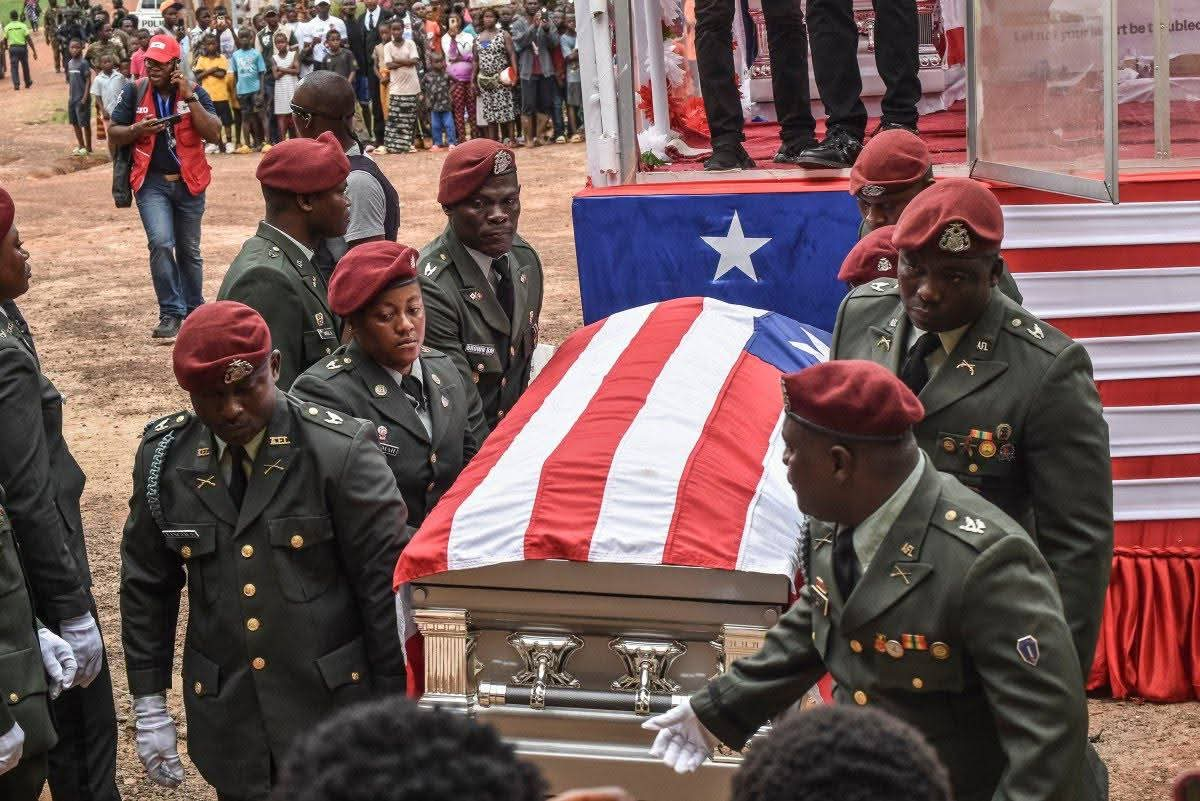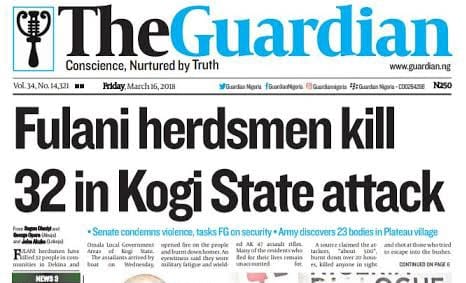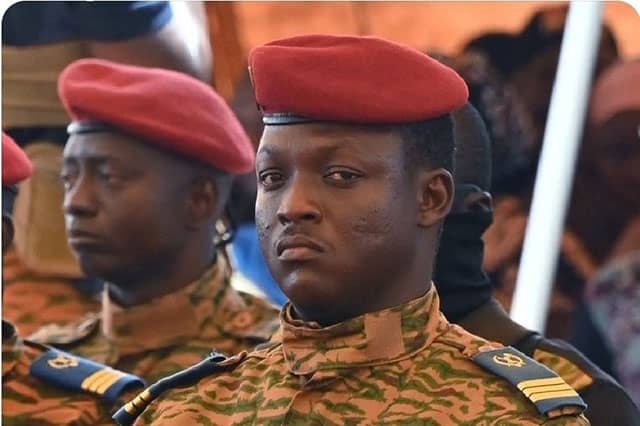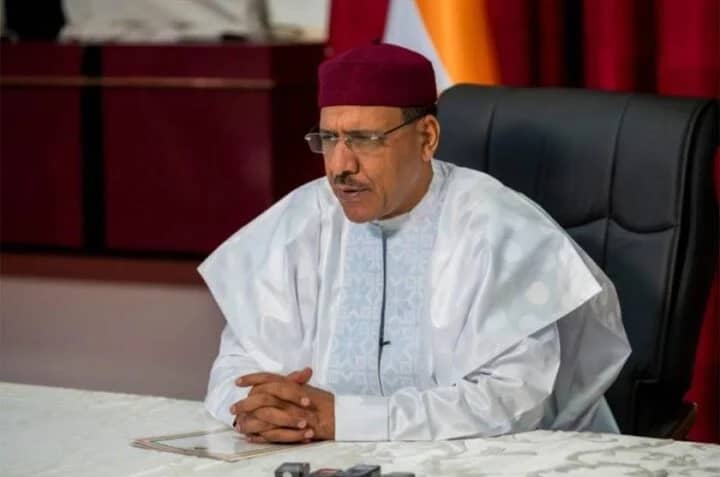Liberian government, in a move many have described as a major step towards reconciliation and a process of the country coming to terms with its violent recent past, carried out a symbolic reburial of two former presidents, William Tolbert and Samuel Doe. Tolbert was executed and his body was believed to have been dumped in a mass grave 45 years ago when his government was toppled in a coup d’etat led by then Staff Sergeant Samule Doe.
In 1990, Thirty-five years ago, and 10 years after Tolbert’s death, Doe was brutally murdered in front of cameras beaming the gruesome act to a global audience during the Liberian civil war after his capture by a rebel faction in Monrovia.
For Tolbert, and the other government officials executed along with him, a grave dug for the funeral was left empty and unsealed, in case any of their remains are ever found. On Friday, two coffins draped in the Liberian flag moved slowly through the streets in Zwedru, some miles from Doe’s birthplace in the heart of Grand Gedeh County, one of them bore the remains of Doe’s late wife, Nancy, and the other, symbolic, for Doe himself, whose body was never recovered.
Liberian president, Joseph Boakai, declared four days of national mourning, describing the events as “an act of national conscience,” and an occasion “to acknowledge historical wrongs and to reaffirm collective commitment to the truth, justice and reconciliation.”
Doe’s April 12 coup in 1980 ended well over a century of political dominance by the minority Americo-Liberians, the descendants of freed black slaves who had come from the US in the 1800s. Tolbert’s nine-year presidency witnessed growing dissatisfaction with the ethnic inequalities.
After his overthrow, and a major political reorganisation by the Doe government that was repressive, Liberia underwent a period of instability, culminating in two devastating civil wars, that finally ended in 2003. Doe himself met a violent death at the hands of rebels in 1990. His reburial in his home town last week was also ordered by Boakai.
Tolbert’s execution marked a major turn in Liberia’s political history. Ten days after his killing, following trials by a military court, 13 members of his cabinet were stripped, tied to stakes and then executed by a firing squad on a beach next to an army barracks in the capital, Monrovia. None of the 14 corpses has been found but each man got a state funeral at a ceremony attended by Boakai and other dignitaries.
An “Americo Liberian,” descended from freed African American slaves, Tolbert was part of a 5% minority that dominated politics for over a century by restricting indigenous voting through English literacy, and Tying land ownership requirements to voting rights. There was widespread intimidation and gerrymandering under his rule.
When Doe took over, power shifted to an indigenous leader for the first time in the country’s history but the repressive nature of the Doe regime saw many political persecutions and allegations of political domination by members of Doe’s ethnic group and cronies. Liberia quickly slid down the path of violent confrontations, with several unsuccessful coup attempts against Doe, culminating in the 1990 civil war, launched by Charles Taylor, but which quickly evolved into a conflict with several splinter rebel groups that fought against each other on the one hand, and the Doe government on the other.
For the families of those executed in 1980, the ceremony was both an act of remembrance and a way of bringing some respect to those who died. “It has been 45 years and the pain is still fresh,” the BBC reported a prominent lawyer, Yvette Chesson-Gibson, daughter of executed Justice Minister Joseph Chesson, as saying. The family of each person killed was presented with a Liberian flag as a mark of their public service.
In 2006, former president, Ellen Johnson Sirleaf, established the Truth and Reconciliation Commission (TRC) to document testimonies about the atrocities committed during the civil wars. In 2009 the Commission listed a number of individuals to be prosecuted for war crimes, but no action was taken. No action has been taken in Liberia to this day but some perpetrators have been convicted in other countries.
Last year Boakai signed an executive order aimed at setting up a special court. There was strong opposition to this move, political commentators say that this decision was a major part of his campaign promises and the reason he secured a lot of support, and many are expecting that it would be implemented.












Become our partner and turn referrals into revenue—join now! https://shorturl.fm/YuHsh
Share your unique link and earn up to 40% commission! https://shorturl.fm/PIGTn
Unlock exclusive rewards with every referral—apply to our affiliate program now! https://shorturl.fm/cBMrN
https://shorturl.fm/z33uV